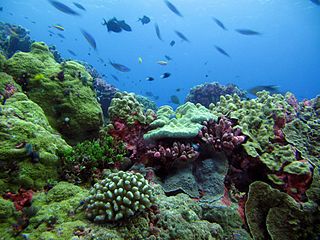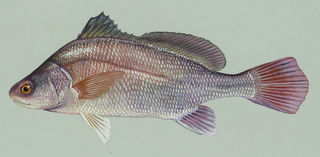| Melanoides admirabilis | |
|---|---|
 | |
| Scientific classification | |
| Kingdom: | Animalia |
| Phylum: | Mollusca |
| Class: | Gastropoda |
| (unranked): | clade Caenogastropoda clade Sorbeoconcha |
| Superfamily: | Cerithioidea |
| Family: | Thiaridae |
| Genus: | Melanoides |
| Species: | M. admirabilis |
| Binomial name | |
| Melanoides admirabilis (E. A. Smith, 1880) [2] | |
| Synonyms | |
Melania (Sermyla) admirabilis Smith, 1880 [2] | |
Melanoides admirabilis is a species of freshwater snail with a gill and an operculum, an aquatic gastropod mollusk in the family Thiaridae.
In biology, a species ( ) is the basic unit of classification and a taxonomic rank of an organism, as well as a unit of biodiversity. A species is often defined as the largest group of organisms in which any two individuals of the appropriate sexes or mating types can produce fertile offspring, typically by sexual reproduction. Other ways of defining species include their karyotype, DNA sequence, morphology, behaviour or ecological niche. In addition, paleontologists use the concept of the chronospecies since fossil reproduction cannot be examined. While these definitions may seem adequate, when looked at more closely they represent problematic species concepts. For example, the boundaries between closely related species become unclear with hybridisation, in a species complex of hundreds of similar microspecies, and in a ring species. Also, among organisms that reproduce only asexually, the concept of a reproductive species breaks down, and each clone is potentially a microspecies.

Freshwater snails are gastropod mollusks which live in freshwater. There are many different families. They are found throughout the world in various habitats, ranging from ephemeral pools to the largest lakes, and from small seeps and springs to major rivers. The great majority of freshwater gastropods have a shell, with very few exceptions. Some groups of snails that live in freshwater respire using gills, whereas other groups need to reach the surface to breathe air. In addition, some are amphibious and have both gills and a lung. Most feed on algae, but many are detritivors and some are filter feeders.

A gill is a respiratory organ found in many aquatic organisms that extracts dissolved oxygen from water and excretes carbon dioxide. The gills of some species, such as hermit crabs, have adapted to allow respiration on land provided they are kept moist. The microscopic structure of a gill presents a large surface area to the external environment. Branchia is the zoologists' name for gills.
This species is found in the Democratic Republic of the Congo, Tanzania, and Zambia. Its natural habitat is freshwater lakes.

The Democratic Republic of the Congo, also known as DR Congo, the DRC, DROC, Congo-Kinshasa, East Congo, or simply the Congo, is a country located in Central Africa. It is sometimes anachronistically referred to by its former name of Zaire, which was its official name between 1971 and 1997. It is, by area, the largest country in Sub-Saharan Africa, the second-largest in all of Africa, and the 11th-largest in the world. With a population of over 78 million, the Democratic Republic of the Congo is the most populated officially Francophone country, the fourth-most-populated country in Africa, and the 16th-most-populated country in the world. Currently, eastern DR Congo is the scene of ongoing military conflict in Kivu, since 2015.

Zambia, officially the Republic of Zambia, is a landlocked country in south-central Africa. It neighbours the Democratic Republic of the Congo to the north, Tanzania to the north-east, Malawi to the east, Mozambique to the southeast, Zimbabwe and Botswana to the south, Namibia to the southwest, and Angola to the west. The capital city is Lusaka, located in the south-central part of Zambia. The population is concentrated mainly around Lusaka in the south and the Copperbelt Province to the northwest, the core economic hubs of the country.

In ecology, a habitat is the type of natural environment in which a particular species of organism lives. It is characterized by both physical and biological features. A species' habitat is those places where it can find food, shelter, protection and mates for reproduction.




